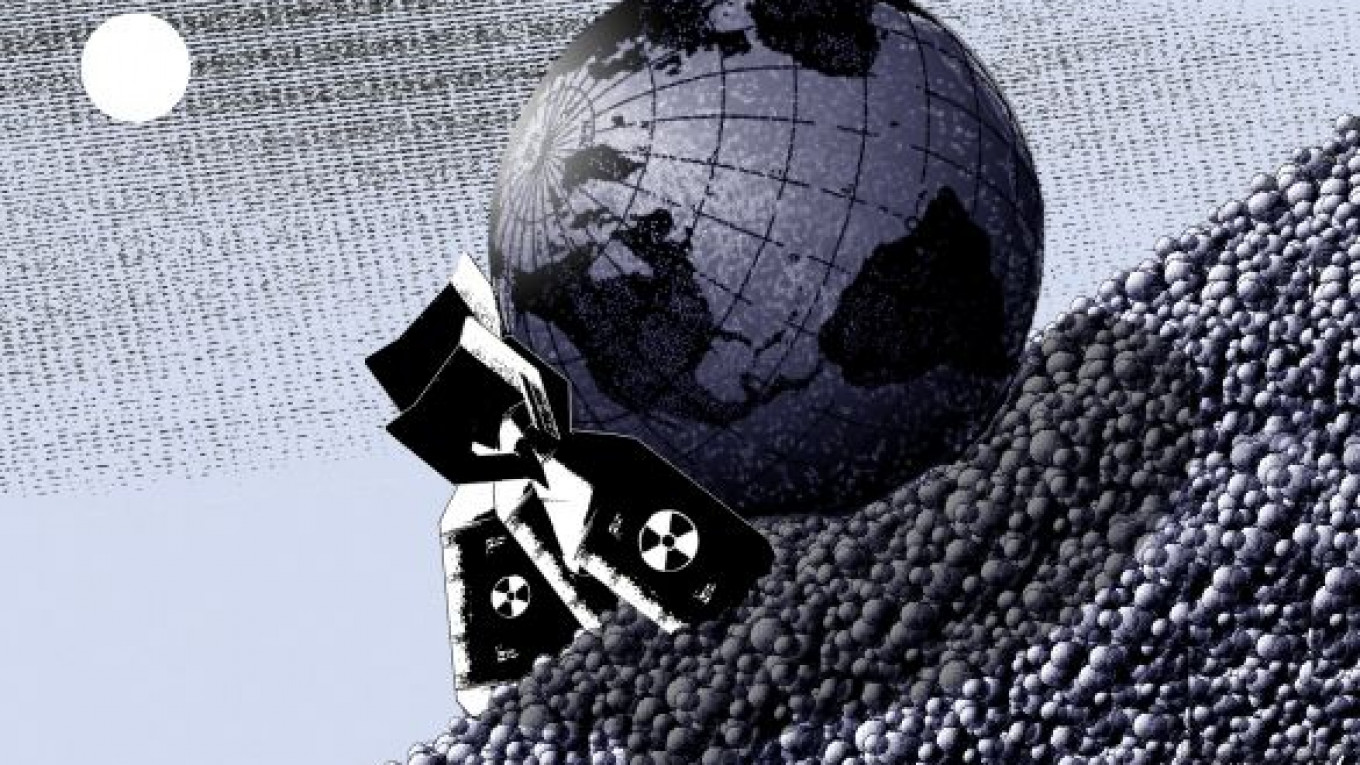Nearly every detail of the Cuban missile crisis has been exhaustively studied and analyzed in the past 50 years. Even if additional documents are one day declassified and new details come to light, the overall picture of what happened will remain unchanged. Some elements of that standoff have passed into history, while others remain pertinent to this day. On the whole, though, it would hardly be possible to find a direct parallel between the October 1962 crisis and current events.
The Cuban missile crisis marked the peak of the Cold War because it drew the red line that neither side was willing to cross. The bitter and ruthless confrontation continued for another 25 years, albeit more indirectly, as a game in which both sides sought to bring as many countries as possible into their own orbits. This rivalry and conflict of interests occasionally erupted into open hostilities in the form of proxy wars.
The risk of a direct nuclear conflict dropped significantly as a result of the Cuban missile crisis, while the ruling elites in both the U.S. and the Soviet Union increasingly came to understand the dangers involved in pursuing adventurist policies. Leaders realized that strategic stability was a prerequisite to lasting peace.
But that did not stop the two superpowers from engaging in an absurd and pointless arms race in which the goal of attaining parity or superiority in nuclear weapons overshadowed the need to ensure national security. This race did more to bring down the Soviet Union than any external threat could have done, but the continuing fear of mutual destruction largely ensured that neither side would use those weapons against the other.
Despite its inherent dangers, the Cold War was marked by uniquely stable international relations. The U.S. and the Soviet Union had great difficulty agreeing on anything, but they were determined to observe basic rules of behavior in the global arena and to ensure that others did so as well. The balance of power between the two superpowers was constantly tested through local conflicts and proxy wars in Asia, Africa and South America, but the central stage of the struggle, Europe, remained stable.
Cuban missile crisis ended peacefully without a nuclear confrontation, but it left a disturbing legacy: The number of nuclear weapons in the U.S. and Russia remains high, and the system of controlling their proliferation has weakened. In addition, the main feature of the Cold War — the existence of two dominating players capable of managing global security — no longer exists.
The world is becoming more democratic, not only because dictatorships are going out of fashion but also because an increasing number of new countries are seeking to influence international affairs. The former political blocs have long ceased to function, and countries once forced to give their allegiance to more powerful states are now behaving more independently. What's more, there is a growing dissatisfaction with the institutionalized inequality that gives five privileged states permanent membership in the United Nations Security Council and the Nuclear Non-Proliferation Treaty, especially since these self-appointed world leaders do not fully carry out their responsibility to regulate international affairs and resolve global conflicts. Meanwhile, the Security Council is often unable to respond to urgent crises and makes decisions based on the backroom deals and selfish interests of the major powers involved. The need for a more effective Security Council becomes greater as the world becomes increasingly unpredictable and more dangerous.
At the same time, however, nuclear weapons remain an important deterrent. As political analyst Sergei Karaganov observed, the rapid shift of power away from the West and toward Asia would not be proceeding so smoothly without the role that nuclear weapons play as a deterrence factor. Historically, such tectonic realignments of power have almost always been accompanied by wars.
But the risk of a direct confrontation with Asia still exists. Theoretically, an Asian version of the Cuban missile crisis could occur in, for example, Taiwan. As China becomes increasingly assertive, the United States will feel compelled to reassert its position as a global leader and prove its abilities to its allies in the region. The nervousness surrounding territorial disputes in eastern and southeastern Asia indicates that a wide range of factors could push the U.S. and China into a war of nerves like the one that existed between Washington and Moscow 50 years ago.
But thanks to the lessons learned back in 1962, such a confrontation would never escalate into a nuclear exchange, for the same reason that it continues to be considered an unacceptable tool for conflict resolution. At the same time, though, as the global proliferation of nuclear weapons continues, the psychological barrier to using them has been lowered. The new members of the nuclear club, both official and unofficial, now are not as prepared to conduct the sophisticated balancing act that the United States and the Soviet Union practiced. As long as the weapons are controlled by more or less responsible governments, the situation remains manageable. But if nuclear weapons fall into the hands of individuals or groups who act outside of international law, this could lead to chaos or even a global catastrophe.
The situation today is fundamentally different from what it was 50 years ago. An increasing number of unpredictable states demand a presence and voice in the global arena at a time when the United States, and all the more so Russia, are unable to control their activities as they once did during the Cold War. It is unclear whether these new players understand what Soviet leader Nikita Khrushchev and U.S. President John F. Kennedy did 50 years ago: that there is a line in global affairs that it would be unthinkable to cross.
Fyodor Lukyanov is editor of Russia in Global Affairs.
Related articles:
A Message from The Moscow Times:
Dear readers,
We are facing unprecedented challenges. Russia's Prosecutor General's Office has designated The Moscow Times as an "undesirable" organization, criminalizing our work and putting our staff at risk of prosecution. This follows our earlier unjust labeling as a "foreign agent."
These actions are direct attempts to silence independent journalism in Russia. The authorities claim our work "discredits the decisions of the Russian leadership." We see things differently: we strive to provide accurate, unbiased reporting on Russia.
We, the journalists of The Moscow Times, refuse to be silenced. But to continue our work, we need your help.
Your support, no matter how small, makes a world of difference. If you can, please support us monthly starting from just $2. It's quick to set up, and every contribution makes a significant impact.
By supporting The Moscow Times, you're defending open, independent journalism in the face of repression. Thank you for standing with us.
Remind me later.








